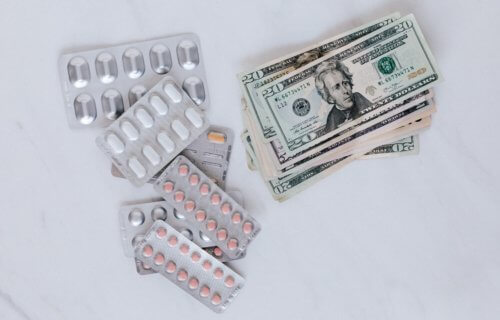PHILADELPHIA — Would it surprise you to learn your physician accepts a gift from a pharmaceutical company? If so, you’re in the majority. A 2017 study finds that most Americans have received care from a doctor who received some type of payment from a drug maker — and very few patients knew.
Researchers at Drexel University, in conjunction with Harvard and Stanford universities, surveyed a representative sample of 3,500 Americans in late 2014 and requested the names of their doctors. The team then compared the names provided to those on Open Payments, a database set up by a provision of the Affordable Care Act that tracks payments from the pharmaceutical and device industries to physicians. The survey was taken shortly before information from the database was made available.
What the researchers found was that of those surveyed, 65% had visited a doctor in the past year who had received payments or gifts from the aforementioned industries. More surprisingly, perhaps, only 5% of those surveyed knew that their doctor had received such an incentive.
“These findings tell us that if you thought that your doctor was not receiving any money from industry, you’re most likely mistaken,” says lead researcher Dr. Genevieve Pham-Kanter in a university release. “Patients should be aware of the incentives that their physicians face that may lead them to not always act in their patients’ best interest. And the more informed patients are about their providers and options for care, the better decisions they can make.”
Specialized care doctors more likely to be unethical?
While the overall proportion of industry-paid physicians was nearly two-thirds, in certain specialties the number was even higher. Eighty-five percent of participants who saw an orthopedic surgeon, for example, visited a physician paid by an interest group, while 77% of those who saw an obstetrician or gynecologist were seeing a paid doctor.
Pham-Kanter and her team report that the median amount received by physicians her participants saw was $510 a year. The average amount received by doctors listed on Open Payments was $193. Most individuals are unaware of the ability to research physician payments online. If such research was a more widespread patient practice, doctors would shy away from accepting gifts, they speculate.
“Drug companies have long known that even small gifts to physicians can be influential, and research validates the notion that they tend to induce feelings of reciprocity,” adds co-author Michelle Mello of Stanford.
The study is published in the Journal of General Internal Medicine.
This article was first published March 16, 2017.

Gifts, what gifts are they talking about, none mentioned. If your talking about the dinner where we here about a pharmaceutical or the meal in the afternoon at the office then your research is surely mistaken about reciprocity. But after a long days Work, seeing a presentation on new medications and the research is a good way to learn of the new drugs availabile
Shouldn’t you WANT to learn about new drugs for your patients? Why do you need a free meal to do so? There are other ways with better optics. You must see how your statement looks to patients. Just sayin’….